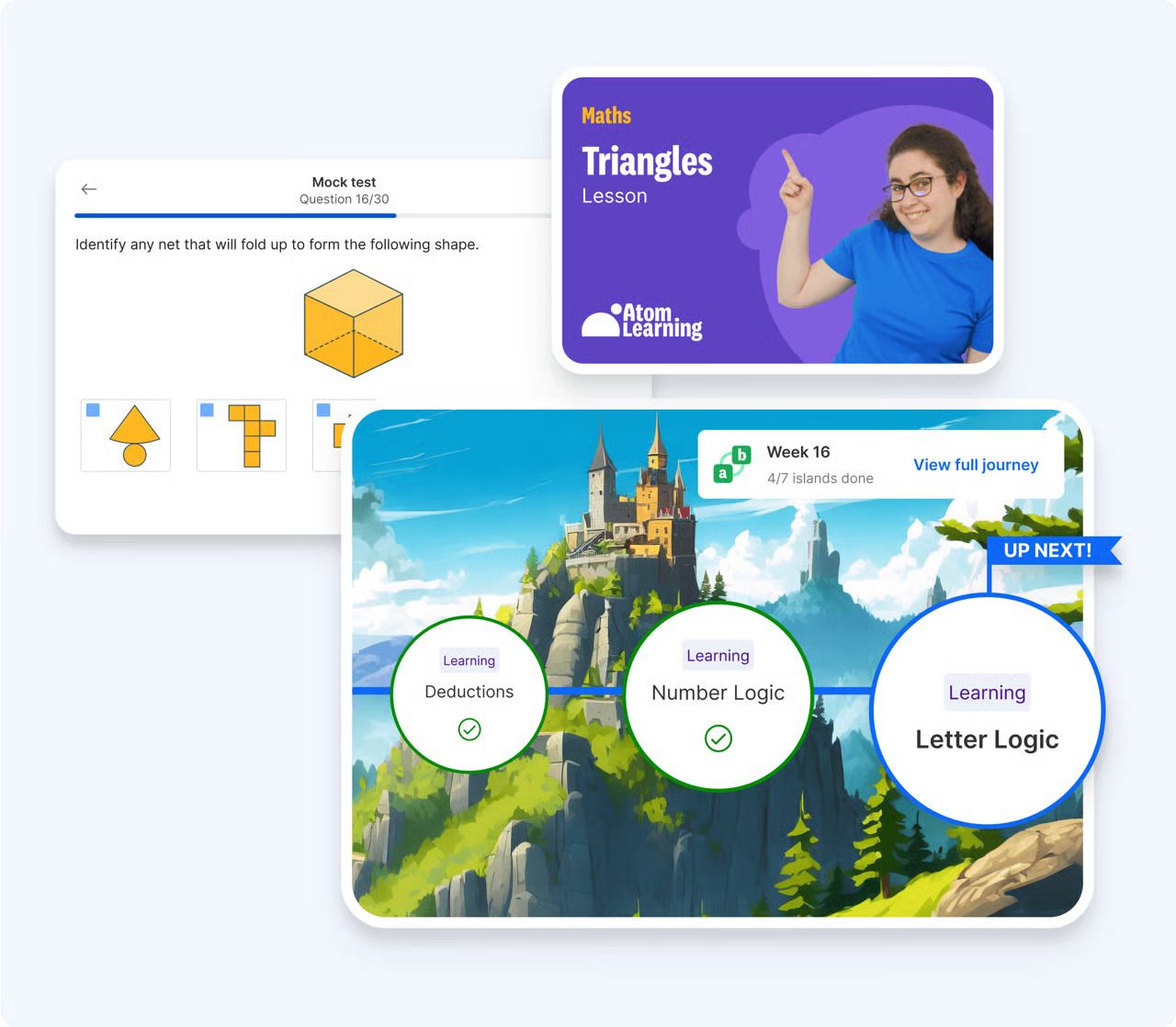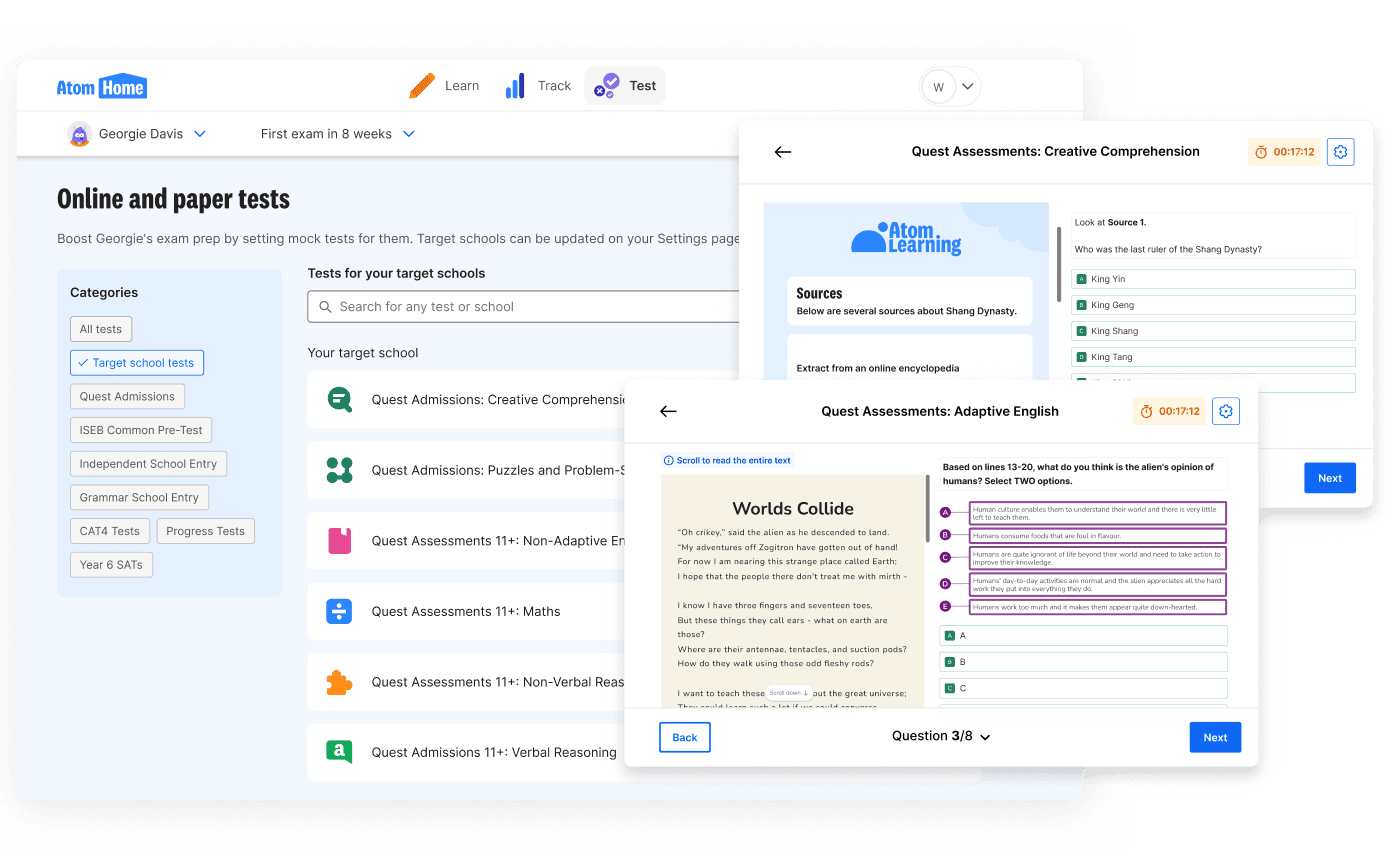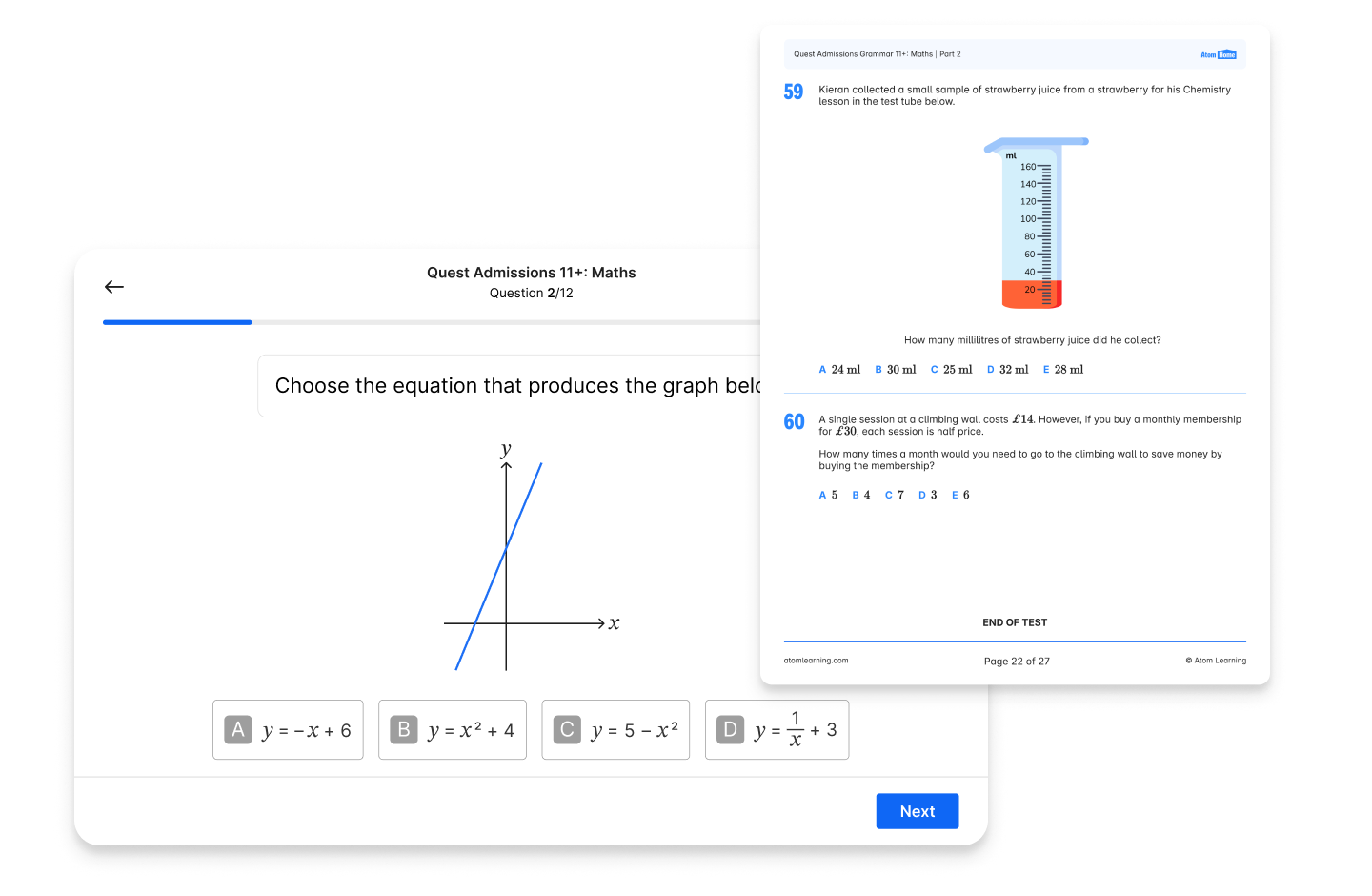Forest School 11 plus guide

Considering Forest School for your child? We’ve collated everything you need to know about 11+ entry. Learn more about the school’s key details, what’s on the entrance exam, and how to help your child prepare for success.
About Forest School
Forest School is a large private day school for boys and girls aged 4 to 18 located on the edge of Epping Forest in northeast London.
The school takes a proactive approach to promoting mental health and well-being. A partnership with Place2Be provides counselling to pupils, and every member of the teaching staff receives Mental Health First Aid Training. Pupils also have wellbeing lessons, PDM (Personal Decision Making), drop-down days, and other mental health initiatives.
Forest School is committed to community collaboration and partnerships. It supports Hackney Empire's Creative Futures programme and provides academic and pastoral mentoring for the London Academy of Excellence students.
Key information for Forest School
- Address: Forest School, Snaresbrook, London E17 3PY
- Admissions contact: [email protected]
- Type of school: Independent day school
- London borough: Waltham Forest
- Age range and gender: Boys and girls, aged 7-18
- Number of pupils: 1,500+
- National league table rank: Take a look at our blog, The top private schools in the UK
- A level/GCSE results: Find more on results here or visit the school website
- Type of entrance exam: Quest Admissions
Dates for your diary for 11+ admissions
- Open days: Open days are held in September and October
- Registration window: Registration closes in November in Year 6
- Selection process: Assessment exams are held in December
For more information, head to the school website.
What's included on Quest 11+ entry exams?
Quest 11+ admissions tests are designed to explore how your child thinks - not just what they know.
Taken online, Quest tests consist of adaptive questions that get more or less challenging depending on how your child is performing and non-adaptive questions. The test is completed under timed conditions and will consist of 2 parts, with each school choosing how to set their test.
- Part 1 tests some or all of the following subjects: English, Maths, Verbal reasoning, Non-verbal reasoning
- Part 2 consists of puzzles and problem-solving and creative comprehension.
- Some schools may incorporate other tests or stages in their admissions process, such as written English and maths papers, a creative writing task, and/or an interview. Check your target school’s website for more.
Financial information
Forest School is a fee paying school. Take a look at the school website for a full breakdown of fees per year group.
Financial assistance
When exploring independent schools for your child, scholarships and bursaries are worth considering. They can ease the pressure of school fees and open doors to opportunities that might otherwise feel out of reach.
Scholarships
Scholarships are awarded for a child’s talent or achievement. While many schools focus on academic excellence, some offer awards in music, sport, drama, art, or other specialist areas.
Scholarships often come with a small fee reduction and acknowledge your child’s talents, motivating them and boosting their confidence. Some schools automatically consider all applicants, while others may request an additional application, assessment or audition.
Visit your target school’s website to see what scholarships are available and how to apply.
For more information, read: Your guide to independent school scholarships.
Bursaries
Bursaries are means-tested awards (based on a family’s financial situation) designed to make independent education more accessible. Depending on your circumstances, a bursary could cover part or all of the school fees and sometimes extras like uniforms, lunches or school trips.
Families provide financial information to qualify, and awards are reassessed each year. For many families, bursaries make an excellent education possible that might otherwise seem out of reach.
Visit your target school’s website to find out what bursaries are available and how to apply.
For more information, read: Bursaries: a parents’ guide
Top tips for applying to independent schools
Preparing for independent school entrance exams doesn’t need to feel daunting. With the right support, your child can feel confident and ready for the exam process.
Here are our top tips to do just that:
1. Get familiar with the 11+ exam format
Many independent school entrance exams test four key areas: English, maths, verbal reasoning, and non-verbal reasoning. These aren’t always taught explicitly in school, so it’s important your child gets used to the types of questions they’ll see in the test.
How Atom helps: Atom’s learning platform mirrors independent school exams, with thousands of interactive questions in all four subjects. Learning content is adaptive, so your child will always work at the right level to keep them challenged without losing motivation.

2. Strengthen core knowledge
A strong grasp of Key Stage 2 English and maths is essential. Make sure your child is confident with grammar, spelling, punctuation, arithmetic and problem-solving before focusing on exam technique.
How Atom helps: Atom covers the entire Key Stage 2 curriculum in English and maths, plus verbal and non-verbal reasoning (which aren't taught on the national curriculum). As your child learns, they’ll earn rewards and progress through fun, engaging learning journeys — all in one platform.
3. Practise speed and accuracy
Your child will need to answer questions accurately and under timed conditions. Regular practice will help them build speed and avoid common mistakes.
How Atom helps: With Atom, your child can access unlimited custom mock tests. You'll get instant results and insights into their strengths and areas to improve.

4. Keep a regular routine
Consistent, manageable study sessions work better than last-minute cramming. Aim for short bursts of focused learning, with regular breaks to avoid fatigue and keep motivation high.
How Atom helps: Atom creates a personalised weekly learning schedule based on your child’s progress. This helps them stay on track without feeling overwhelmed.
5. Practise interview technique
Many independent schools hold interviews to provide a better understanding of whether the school is right for your child and vice versa. Practising interview techniques at home will build confidence ahead of the big day.
How Atom helps: Find out more about preparing your child in our ultimate guide to interviews, including question examples and more.
6. Track progress over time
Knowing how your child is progressing can give you peace of mind — and help you target revision more effectively. It’s also a great way to celebrate the effort they’re putting in.
How Atom helps: You’ll get access to a real-time parent dashboard, where you can see how your child is performing across all subjects. No need to guess what’s going well or what needs more attention.
7. Get the right support
You don’t need to rely on expensive tutors to prepare for independent school exams. With the right tools, your child can prepare effectively and independently — while building long-term skills and confidence.
How Atom helps: Atom combines high-quality learning resources with smart technology to deliver a tutor-quality experience at home. And if you ever need help, our Education Support team is here to guide you.
Help your child feel ready for Quest Admissions

Quest Admissions tests can vary by school, and that’s where many families feel lost. Atom helps break preparation down into simple steps, so your child can build the skills and confidence needed for success.
- Follow personalised weekly exam plans that focus on the key skills commonly assessed in Quest Admissions.
- Practise with replica Quest mock tests that generate new questions every time – whether you’re preparing for online tests or paper tests.
- Track progress and spot strengths and gaps early, long before the exam.
Start your free trial and help your child build the skills to succeed in Quest Admissions.
